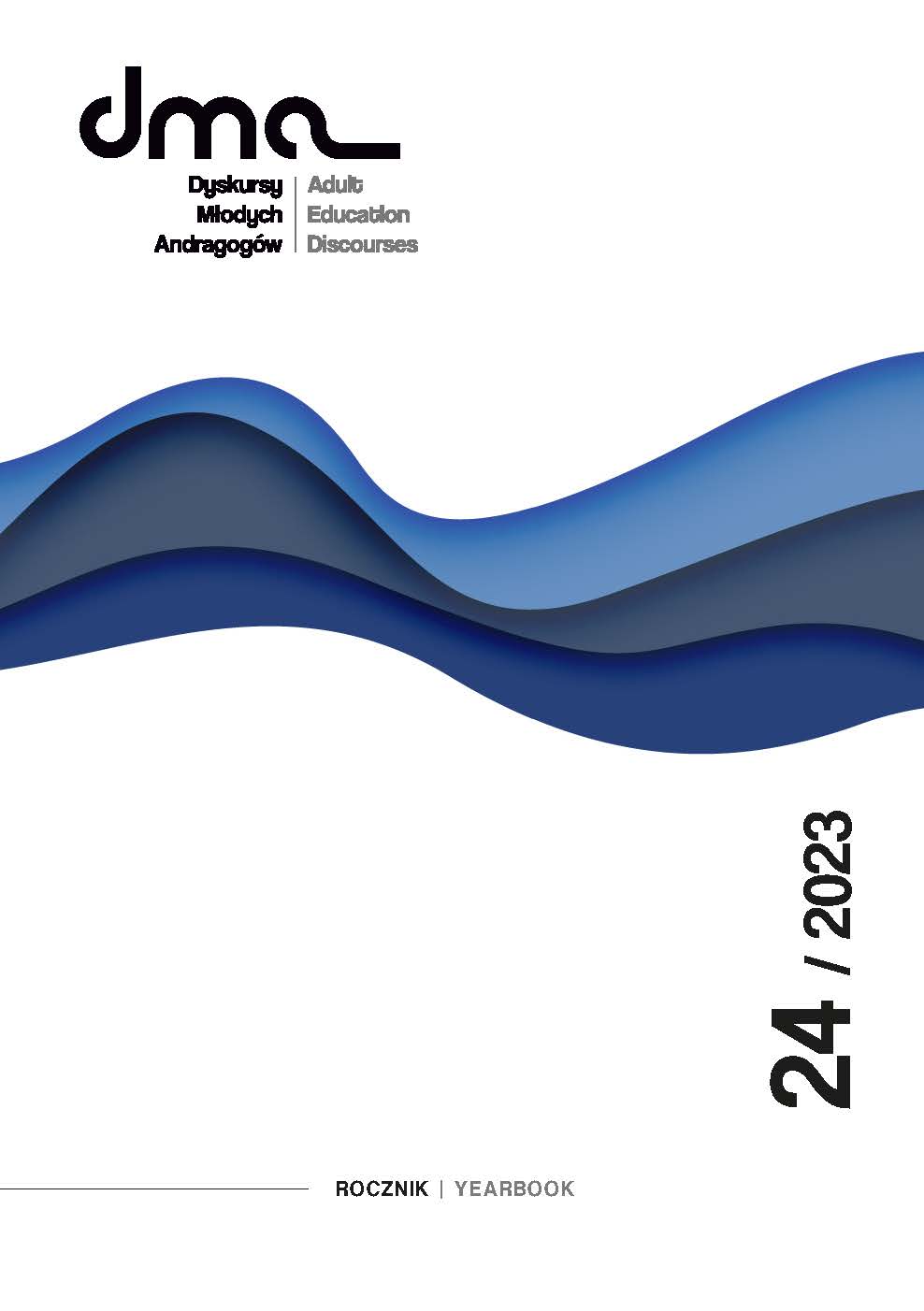Abstrakt
Recent decades have witnessed the ageing of populations in many countries across the world accompanied by unprecedented social, cultural, and technological change as well as recognition of the implications of climate change. As this demographic transformation has posed a full range of challenges to policy dimensions in certain countries, the importance of older people being able to access appropriate learning opportunities has become more widely recognised. Increasingly, it is understood that this is necessary not only for the economies of different countries, which may require people to remain for longer in the labour market but also as an essential component of a fulfilling later life. However, a focus only on chronological age and ageing fails to allow for the more positive aspects of what may be termed “the longevity effect” which has been driven by a better understanding of the factors that influence increased life expectancy in different countries, enabling people to live longer, happier and more productive lives. It is argued firstly that we need to rethink the current focus on “aging” and replace it with a more positive emphasis on “longevity” that includes an understanding of what happens to our brains as we grow older. Secondly, the concept of “long life learning” which is beginning to appear in different contexts is explored. Thirdly, it is acknowledged that the worldwide spread of COVID-19 has both opened up some novel ways of helping some older people to learn and, simultaneously, widened the so-called digital divide. Finally, the pernicious influence of ageism is considered.
Bibliografia
Applewhite, A. (2019) This chair rocks. A manifesto against ageism. London: Melville House UK.
Bachrach, E. (2012) The agile mind.London: Virgin Books.
Butler, R.N. (1969) Age-ism: Another form of bigotry. The Gerontologist [online], 9(4), 243-246. Available at: https://doi.org/10.1093/geront/9.4_Part_1.243.
Centre for Ageing Better (2020) How has COVID-19 changed the landscape of digital inclusion? Briefing [online]. Available at: www.ageing-better.org.uk [2.02.2021].
Cohen, G.D. (2005) The mature mind. New York: Basic Books.
Conley, C. (2018) Wisdom at work: How to reinvent the second half of your career. London: Portfolio Penguin.
Erikson, E.H. (1980) Identity and the life cycle. New York: W.W. Norton & Company.
Eurostat (2022) Key figures on Europe. 2022 edition [online]. Available at: https://ec.europa.eu/ [31.08.2022].
Formosa, M. (2022) Online learning for older persons during the COVID-19 pandemic in Malta: the good, the bad and the ugly. In: M. Łuszcyńska & M. Formosa (eds.) Ageing and COVID-19: Making sense of a disrupted world. London & New York: Routledge, 169-182.
Gendron, T. (2022) Ageism unmasked. Exploring age bias and how to end it. Steerforth Press: Lebanon, NH.
Gratton, L. & Scott, A.J. (2016) The 100-Year Life. London & New York: Bloomsbury Information.
Gullette, M.M. (2017) Ending ageism or how not to shoot old people. New Brunswick, NJ. & London: Rutgers University Press.
Hachem, H. (2020) Is there a need for a fourth statement? An examination of the critical and humanist statements of educational gerontology principles. International Journal of Lifelong Education [online], 39, 465-477. Available at: https://doi 10.1080/02601370.2020.1801869.
Kern, D. (2018) Research on epistemological models of older adult education: the need of a contradictory discussion. Educational Gerontology [online], 44, 338-353. Available at: https://doi.org/10.1080/03601277.2018.1475123.
Levitin, D.J. (2020) The changing mind. London: Penguin Life.
Levy, B. (2022) Breaking the age code. London: Vermilion.
Montepare, J.M., Farah, K.S., Bloom, S.F. & Tauriac, J. (2020) Age-friendly universities: Possibilities and power in campus connections. Gerontology & Geriatrics Education [online], 41(3), 273-280. Available at: https://doi.10.1080/02701960.2020.1726744.
Rabbitt, P. (2015) The ageing mind. An owner’s manual.London & New York: Routledge.
Royal Society for Public Health (2018) That age old question [online]. Available at: https://www.rsph.org.uk/our-work/policy/older-people/that-age-old.question.html [5.10.2018].
Sanderson, W.C. & Scherbov, S. (2019) Prospective longevity. A new vision of population aging. Cambridge, MA: Harvard University Press.
Sands, K. (2016) The ageless way. Roxbury, CT: Broad Minded Publishing.
Scott, A.J. & Gratton, L. (2020) The new long life. London: Bloomsbury Publishing.
Sinclair, D. (2019) Lifespan. Why we age and why we don’t have to. London: Thorsons.
Steele, A. (2020) Ageless: The new science of getting older without getting old. London: Bloomsbury Publishing.
Talmage, C., Mark, R., Slowey, M. & Knopf, R.C. (2016) Age friendly universities and engagement with older adults: moving from principles to practice. International Journal of Lifelong Education [online], 35 (5), 1-18. Available at: https://doi. 10.
02601370.2016.1224040.
UNESCO Institute for Lifelong Learning (2022) 5th Global report on adult learning and education:
citizenship education; empowering adults for change [online]. Available at: https://unesdoc.unesco.org [15.08.2022].
United Nations, Department of Economic and Social Affairs. Division for Sustainable Development Goals (2018). The 17 goals [online]. Available at: https://sdgs.un.org [15.01.2021].
von Doetinchem, S. & Livingston, L. (2020) Lifelong learning in the age of COVID-19, Generations Now [online]. Available at: https://www.academia.edu/43950987/Lifelong_ Learning_in_the_Age_of_COVID_19 [15.09.2022].
Weise, M.R. (2021) Long life learning. Hoboken, NJ: John Wiley & Sons, Inc.
Withnall, A. (2010)Improving learning in later life. London & New York: Routledge.
World Health Organization (2002) Active Ageing. A policy framework. Geneva: WHO.
World Health Organization (2020) UN decade of healthy ageing 2021-2030 [online]. Available at: https://www.who.int/ [15.01.2021].
World Health Organization (2021) Global report on ageism. [online]. Available at: https://www.who.int/teams/social-determinants-of-health/demographic-change-and-healthy-ageing/combatting-ageism/global-report-on-ageism [15.07.2022].
Worldometers (2022) Available at: https://www.worldometers.info/ [25.09.2022].

Utwór dostępny jest na licencji Creative Commons Uznanie autorstwa 4.0 Międzynarodowe.
Copyright (c) 2023 Dyskursy Młodych Andragogów/Adult Education Discourses

 /
/  Język
Język
